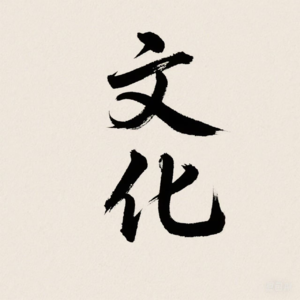
时长:
3分钟
播放:
403
发布:
4个月前
主播...
简介...
微信扫码关注↑,在对话框中输入关键词“小宇宙”,领取1-50期中英文文本。
本期文本
为什么中国人如此喜爱红色?
Why are Chinese people so fond of the color red?
这一切要从历史说起。
It all started from history.
在古代,红色象征着血液与火焰,代表着生命与文明。
In ancient times, red symbolized blood and fire, representing life and civilization.
这便是红色崇拜最原始的形态。
This was the most primitive form of red worship.
到了明朝,由于朱元璋的姓氏(“朱”)及其发迹之地(“朱” 在古代也与 “赤”“红” 同义),
During the Ming Dynasty, due to Zhu Yuanzhang’s surname ("Zhu," which was synonymous with "red" in ancient Chinese) and the place where he rose to power,
红色被推向了极致 —— 小到衣物服饰,大到紫禁城的红墙,甚至是官方印章,都以红色为主。
red was taken to the extreme: from small things like clothing to major elements such as the red walls of the Forbidden City and even official seals, all featured red prominently.
自此,红色成为中国人喜爱的颜色,与吉祥、喜庆紧密相连。
Since then, red has become a beloved color for Chinese people, associated with good fortune and happiness.
抗日战争时期,红色又成为了革命的象征。
During the War of Resistance Against Japanese Aggression, red became a symbol of revolution.
无数先辈为了祖国的和平,浴血牺牲。
Countless ancestors gave their lives in bloodshed for the peace of the motherland.
中国人民奋勇前进、攻坚克难,红色也被赋予了一个新的名字 —— 中国红。
The Chinese people forged ahead, overcoming obstacles, and red was given a new name — China Red.
Key words
-primitive
1. 作为形容词 (Adjective)
这是它最常见的用法,主要有以下几个核心意思:
* 原始的,早期的:指处于发展的早期或最基础的阶段。
例:The museum has a collection of primitive tools. (博物馆收藏了一些原始工具。)
* 简陋的,粗糙的:指某物的设计或构造非常简单,甚至有些落后。
例:They lived in a primitive shelter made of branches. (他们住在一个用树枝搭成的简陋棚屋里。)
* 原始部落的,未开化的:指与现代文明隔绝的、较原始的社会或文化。(注意:这个用法在现代语境下可能带有冒犯性,需谨慎使用。)
例:The documentary explores primitive cultures in the Amazon. (这部纪录片探索了亚马逊地区的原始文化。)
* (生物学)低等的,原始的:指结构简单、进化程度较低的生物。
例:Amoebas are primitive organisms. (变形虫是低等生物。)
1. 作为名词 (Noun)
* 原(始)人:指人类的早期祖先。
例:Anthropologists study primitives. (人类学家研究原始人。)
* 原始派艺术家 / 作品:指自学成才、风格质朴的艺术家或其作品。
例:He is a famous primitive in the art world. (他是艺术界著名的原始派画家。)
常见搭配
* primitive society (原始社会)
* primitive technology (原始技术)
* primitive instinct (原始本能)
-prominently
它的核心意思是 “显著地、突出地、显眼地”。
主要用法
1. 物理位置上的 “显眼”指某物被放置在非常容易被看到的地方。
例:The logo was prominently displayed on the front page. (这个标志被醒目地展示在首页上。)
2. 重要性或地位上的 “突出”指某人或某物在一个群体或领域中非常重要、活跃,扮演着主要角色。
例:She features prominently in the company's new advertising campaign. (她在公司新的广告活动中扮演着重要角色。)
常见搭配
* be prominently displayed/featured (被显眼地展示 / 突出地特写)
* figure prominently (扮演重要角色,很突出)
* prominently located (地理位置优越 / 显眼)
相关词
* 形容词: prominent (显著的、突出的、重要的)
* 名词: prominence (显著、突出、声望)
-resistance
核心词性为名词,含义丰富且在不同领域有特定用法。
核心含义与场景细分
常见搭配与固定表达
1. drug resistance (抗药性 / 耐药性)
例:The spread of drug resistance is a major public health concern. (抗药性的传播是一个主要的公共卫生问题。)
2. resistance to change (对变革的抵制)
例:Management must overcome internal resistance to change. (管理层必须克服内部对变革的抵制。)
3. put up/show resistance (进行 / 表现出抵抗)
例:The rebels put up little resistance. (叛军几乎没有进行抵抗。)
4. Resistance Movement (抵抗运动)
例:He joined the French Resistance during World War II. (他在二战期间加入了法国抵抗运动。)
5. resistance training (抗阻训练 / 力量训练)
例:Incorporating resistance training into your routine can build muscle. (将抗阻训练纳入你的日常可以增强肌肉。)
相关词
* 动词: resist (抵抗;抗拒)
* 形容词: resistant (抵抗的;有抵抗力的)
例:This material is resistant to water. (这种材料防水。)
-aggression
它的核心意思是 “攻击” 或 “侵略”,通常指带有敌意的行为或态度。
主要含义与场景
1. 行为上的攻击:指任何带有伤害他人或破坏意图的行为。
例:The teacher warned the student about his aggression towards classmates. (老师警告了那个学生对同学的攻击行为。)
2. 心理上的攻击性:指易怒、敌意强的性格特质。
例:His constant aggression makes it hard to work with him. (他持续的攻击性让人很难与他共事。)
3. 军事或政治上的侵略:指一个国家对另一个国家的武力进攻或侵犯主权。
例:The invasion was condemned as an act of aggression. (这次入侵被谴责为侵略行为。)
4. 体育竞技中的 “拼劲”:在体育语境下,可指一种积极、主动、富有竞争性的强硬风格(通常为中性或褒义)。
例:The team played with great aggression in the second half. (球队在下半场踢得非常有侵略性 / 拼劲十足。)
常见搭配
* physical aggression (身体攻击)
* verbal aggression (言语攻击)
* acts of aggression (侵略行为 / 攻击行为)
* aggression towards sb (对某人的攻击)
相关词
* 形容词: aggressive (攻击的;侵略性的;有进取心的)
* 副词: aggressively (侵略地;积极地)
* 动词: aggress (攻击,较少用)
- bloodshed
它的核心意思是 “流血”,特指因暴力冲突、战争或谋杀等造成的大量人员伤亡。
主要用法
1. 指暴力冲突导致的 “流血事件” 或 “杀戮”
例:The protest turned into a scene of violence and bloodshed. (抗议活动演变成了暴力和流血事件。)
2. 强调 “杀戮” 本身,作为一种结果或状态
例:The dictator was responsible for years of bloodshed. (这个独裁者应对多年的杀戮负责。)
常见搭配
* avoid/prevent bloodshed (避免 / 防止流血事件)
例:Diplomats are working to prevent further bloodshed. (外交官们正努力防止更多的流血事件。)
* shed blood (流血;造成伤亡)
例:Many lives were lost and much blood was shed in the war. (战争中牺牲了许多生命,流了很多血。)
* a cycle of bloodshed (流血循环)
例:The region is trapped in a cycle of bloodshed and revenge. (该地区陷入了流血和复仇的循环。)
更多精彩内容,微信Transl234
本期文本
为什么中国人如此喜爱红色?
Why are Chinese people so fond of the color red?
这一切要从历史说起。
It all started from history.
在古代,红色象征着血液与火焰,代表着生命与文明。
In ancient times, red symbolized blood and fire, representing life and civilization.
这便是红色崇拜最原始的形态。
This was the most primitive form of red worship.
到了明朝,由于朱元璋的姓氏(“朱”)及其发迹之地(“朱” 在古代也与 “赤”“红” 同义),
During the Ming Dynasty, due to Zhu Yuanzhang’s surname ("Zhu," which was synonymous with "red" in ancient Chinese) and the place where he rose to power,
红色被推向了极致 —— 小到衣物服饰,大到紫禁城的红墙,甚至是官方印章,都以红色为主。
red was taken to the extreme: from small things like clothing to major elements such as the red walls of the Forbidden City and even official seals, all featured red prominently.
自此,红色成为中国人喜爱的颜色,与吉祥、喜庆紧密相连。
Since then, red has become a beloved color for Chinese people, associated with good fortune and happiness.
抗日战争时期,红色又成为了革命的象征。
During the War of Resistance Against Japanese Aggression, red became a symbol of revolution.
无数先辈为了祖国的和平,浴血牺牲。
Countless ancestors gave their lives in bloodshed for the peace of the motherland.
中国人民奋勇前进、攻坚克难,红色也被赋予了一个新的名字 —— 中国红。
The Chinese people forged ahead, overcoming obstacles, and red was given a new name — China Red.
Key words
-primitive
1. 作为形容词 (Adjective)
这是它最常见的用法,主要有以下几个核心意思:
* 原始的,早期的:指处于发展的早期或最基础的阶段。
例:The museum has a collection of primitive tools. (博物馆收藏了一些原始工具。)
* 简陋的,粗糙的:指某物的设计或构造非常简单,甚至有些落后。
例:They lived in a primitive shelter made of branches. (他们住在一个用树枝搭成的简陋棚屋里。)
* 原始部落的,未开化的:指与现代文明隔绝的、较原始的社会或文化。(注意:这个用法在现代语境下可能带有冒犯性,需谨慎使用。)
例:The documentary explores primitive cultures in the Amazon. (这部纪录片探索了亚马逊地区的原始文化。)
* (生物学)低等的,原始的:指结构简单、进化程度较低的生物。
例:Amoebas are primitive organisms. (变形虫是低等生物。)
1. 作为名词 (Noun)
* 原(始)人:指人类的早期祖先。
例:Anthropologists study primitives. (人类学家研究原始人。)
* 原始派艺术家 / 作品:指自学成才、风格质朴的艺术家或其作品。
例:He is a famous primitive in the art world. (他是艺术界著名的原始派画家。)
常见搭配
* primitive society (原始社会)
* primitive technology (原始技术)
* primitive instinct (原始本能)
-prominently
它的核心意思是 “显著地、突出地、显眼地”。
主要用法
1. 物理位置上的 “显眼”指某物被放置在非常容易被看到的地方。
例:The logo was prominently displayed on the front page. (这个标志被醒目地展示在首页上。)
2. 重要性或地位上的 “突出”指某人或某物在一个群体或领域中非常重要、活跃,扮演着主要角色。
例:She features prominently in the company's new advertising campaign. (她在公司新的广告活动中扮演着重要角色。)
常见搭配
* be prominently displayed/featured (被显眼地展示 / 突出地特写)
* figure prominently (扮演重要角色,很突出)
* prominently located (地理位置优越 / 显眼)
相关词
* 形容词: prominent (显著的、突出的、重要的)
* 名词: prominence (显著、突出、声望)
-resistance
核心词性为名词,含义丰富且在不同领域有特定用法。
核心含义与场景细分
常见搭配与固定表达
1. drug resistance (抗药性 / 耐药性)
例:The spread of drug resistance is a major public health concern. (抗药性的传播是一个主要的公共卫生问题。)
2. resistance to change (对变革的抵制)
例:Management must overcome internal resistance to change. (管理层必须克服内部对变革的抵制。)
3. put up/show resistance (进行 / 表现出抵抗)
例:The rebels put up little resistance. (叛军几乎没有进行抵抗。)
4. Resistance Movement (抵抗运动)
例:He joined the French Resistance during World War II. (他在二战期间加入了法国抵抗运动。)
5. resistance training (抗阻训练 / 力量训练)
例:Incorporating resistance training into your routine can build muscle. (将抗阻训练纳入你的日常可以增强肌肉。)
相关词
* 动词: resist (抵抗;抗拒)
* 形容词: resistant (抵抗的;有抵抗力的)
例:This material is resistant to water. (这种材料防水。)
-aggression
它的核心意思是 “攻击” 或 “侵略”,通常指带有敌意的行为或态度。
主要含义与场景
1. 行为上的攻击:指任何带有伤害他人或破坏意图的行为。
例:The teacher warned the student about his aggression towards classmates. (老师警告了那个学生对同学的攻击行为。)
2. 心理上的攻击性:指易怒、敌意强的性格特质。
例:His constant aggression makes it hard to work with him. (他持续的攻击性让人很难与他共事。)
3. 军事或政治上的侵略:指一个国家对另一个国家的武力进攻或侵犯主权。
例:The invasion was condemned as an act of aggression. (这次入侵被谴责为侵略行为。)
4. 体育竞技中的 “拼劲”:在体育语境下,可指一种积极、主动、富有竞争性的强硬风格(通常为中性或褒义)。
例:The team played with great aggression in the second half. (球队在下半场踢得非常有侵略性 / 拼劲十足。)
常见搭配
* physical aggression (身体攻击)
* verbal aggression (言语攻击)
* acts of aggression (侵略行为 / 攻击行为)
* aggression towards sb (对某人的攻击)
相关词
* 形容词: aggressive (攻击的;侵略性的;有进取心的)
* 副词: aggressively (侵略地;积极地)
* 动词: aggress (攻击,较少用)
- bloodshed
它的核心意思是 “流血”,特指因暴力冲突、战争或谋杀等造成的大量人员伤亡。
主要用法
1. 指暴力冲突导致的 “流血事件” 或 “杀戮”
例:The protest turned into a scene of violence and bloodshed. (抗议活动演变成了暴力和流血事件。)
2. 强调 “杀戮” 本身,作为一种结果或状态
例:The dictator was responsible for years of bloodshed. (这个独裁者应对多年的杀戮负责。)
常见搭配
* avoid/prevent bloodshed (避免 / 防止流血事件)
例:Diplomats are working to prevent further bloodshed. (外交官们正努力防止更多的流血事件。)
* shed blood (流血;造成伤亡)
例:Many lives were lost and much blood was shed in the war. (战争中牺牲了许多生命,流了很多血。)
* a cycle of bloodshed (流血循环)
例:The region is trapped in a cycle of bloodshed and revenge. (该地区陷入了流血和复仇的循环。)
更多精彩内容,微信Transl234
评价...
空空如也
小宇宙热门评论...

摇摇猪的XYZ
4个月前
江苏
0
跨越语言界限,点亮中国故事。

